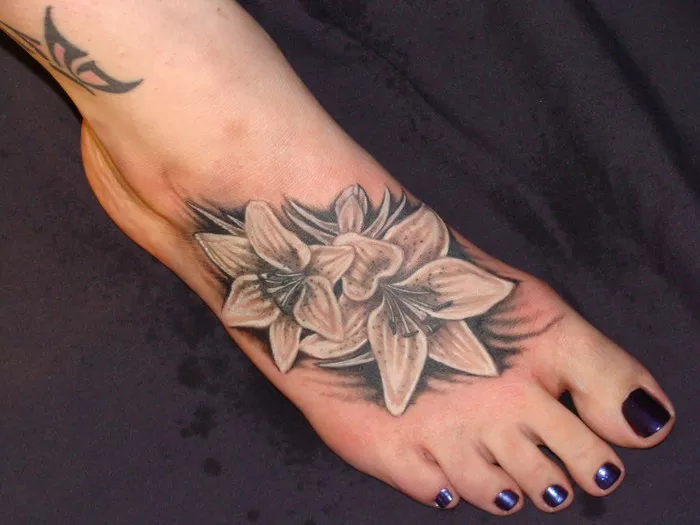Tattoos have become increasingly mainstream over the years, with more people opting to adorn their bodies with meaningful designs. As the demand for tattoos rises, so does the number of aspiring tattoo artists. However, there is a common misconception that anyone with a passion for art can excel in the tattooing industry, regardless of their drawing skills. This belief raises an important question: can a tattoo artist be bad at drawing?
In this article, we will delve into the complexities of tattooing as an art form, dispel myths surrounding the correlation between drawing ability and tattooing proficiency, and explore the factors that contribute to success in the tattoo industry.
The Artistry of Tattooing
Tattooing is a unique form of art that requires a blend of creativity, technical skill, and meticulous attention to detail. Unlike traditional mediums such as paper or canvas, the human body presents its own set of challenges and considerations for tattoo artists. Factors such as skin texture, elasticity, and curvature must be taken into account when designing and executing a tattoo.
At its core, tattooing is fundamentally about translating an idea or concept onto the skin in a way that is visually appealing and meaningful to the client. This process involves not only drawing skills but also an understanding of composition, color theory, and anatomy. While drawing skills certainly play a role in the initial design phase, they are not the sole determinant of a tattoo artist’s ability to create stunning and technically proficient tattoos.
Dispelling the Myth
One of the most pervasive myths in the tattoo industry is the belief that all tattoo artists must possess exceptional drawing abilities to succeed. This misconception often stems from the assumption that tattooing is simply “drawing on skin.” However, this oversimplification fails to acknowledge the multitude of skills and techniques that are unique to the tattooing process.
While strong drawing skills can certainly be an asset for a tattoo artist, they are by no means a guarantee of success. Conversely, lacking drawing proficiency does not necessarily preclude someone from becoming a skilled tattoo artist. Many successful tattoo artists have honed their craft through years of hands-on experience, mentorship, and continuous learning.
The Importance of Technical Skill
While drawing may be a foundational skill for tattoo artists, technical proficiency is equally—if not more—important. Tattooing requires a steady hand, precise control of equipment, and an understanding of how different skin types and colors interact with ink. These technical skills can be developed through rigorous training, practice, and a willingness to learn from mistakes.
Additionally, successful tattoo artists possess a keen eye for detail and the ability to adapt their techniques to suit the unique characteristics of each client’s skin. This level of expertise goes beyond mere drawing ability and encompasses a broader understanding of tattooing as a specialized craft.
Artistry vs. Replication
Another aspect to consider is the distinction between artistic creativity and the ability to replicate existing designs. While some tattoo artists may excel at drawing original artwork, others may specialize in reproducing pre-existing designs or customizing designs to suit their clients’ preferences. In these cases, technical skill and attention to detail may be more important than raw drawing talent.
Furthermore, tattooing is a collaborative process between the artist and the client. A skilled tattoo artist knows how to communicate effectively with clients, understand their vision, and translate it into a tattoo that meets their expectations. This ability to interpret and execute client requests is a hallmark of a competent tattoo artist, regardless of their drawing abilities.
The Role of Training and Education
While natural talent certainly plays a role in artistic endeavors, the importance of formal training and education cannot be overstated. Many successful tattoo artists have undergone apprenticeships or formal training programs where they learn not only the technical aspects of tattooing but also important skills such as sanitation, client interaction, and business management.
These training programs provide aspiring tattoo artists with the foundation they need to succeed in a competitive industry. Additionally, ongoing education and professional development are essential for staying abreast of new techniques, equipment, and trends in the field of tattooing.
Conclusion
In conclusion, the question of whether a tattoo artist can be bad at drawing is nuanced and multifaceted. While drawing skills certainly play a role in the tattooing process, they are not the sole determinant of a tattoo artist’s proficiency. Technical skill, creativity, client communication, and ongoing education all contribute to success in the tattoo industry.
Rather than focusing solely on drawing ability, aspiring tattoo artists should strive to develop a well-rounded skill set that encompasses both artistic creativity and technical expertise. By doing so, they can fulfill their clients’ expectations and create tattoos that are not only visually stunning but also meaningful and enduring.

